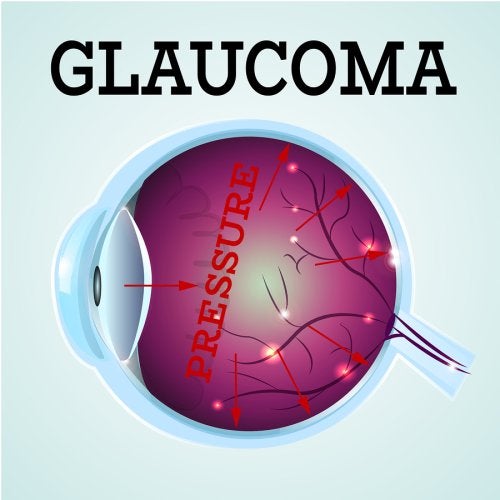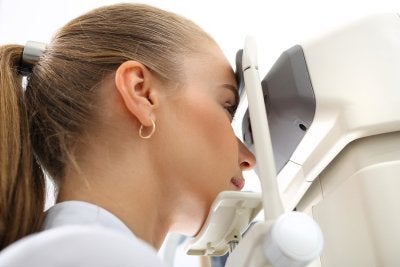-
Preserving Your Eyesight After Being Diagnosed with Glaucoma
While eye care is important at all stages of life, it becomes even more critical after being diagnosed with glaucoma. If your eye doctor in Chicago has informed you that you have this condition, then continue reading to learn how to help preserve your eyesight.
Glaucoma is typically a result of pressure that builds up in the eye and causes damage to the optic nerve, which is responsible for transmitting information to the brain. As the optic nerve deteriorates, so does vision. For this reason, glaucoma can lead to blindness in just a few years if not treated by an eye doctor.
Diagnosing glaucoma early and being treated by an ophthalmologist are key to preserving your eyesight when you have this condition. For this reason, it’s important to see your eye doctor regularly for checkups and to adhere to your treatment plan. Some of the treatment options for glaucoma include microsurgery, laser surgery, and medicated eye drops.

-
Spotlight on the Leading Cause of Vision Loss for Americans Over 60
When it comes to vision loss in seniors, age-related macular degeneration (AMD) is a common problem seen by eye doctors in Chicago . In developed countries, AMD is the leading cause of irreversible vision loss in older adults. If you are nearing age 60 and have concerns about your eye care, then continue reading to learn more about this condition.

The Basics of AMD
At the center of the retina is a small area called the macula, which provides pinpoint vision and enables you to see details clearly. In this way, the macula plays an important role in helping you read, drive, and recognize faces. Macular degeneration refers to the breakdown of the macula, and it’s common for people to develop this condition as a natural part of the aging process. For this reason, age-related macular degeneration is the most common type of macular problem.
The Causes of AMD
Macular degeneration can result from abnormal blood vessel growth beneath the retina. The formation of deposits under the retina, called drusen, are another cause. Studies indicate that genetic changes could be responsible for many cases of macular degeneration, and researchers suspect that the oxidative stress caused by the formation of free radicals in the body may also play a role in the development of AMD.
The Symptoms of AMD
AMD can affect your central vision by causing blurriness, distortion, or dark spots, and this condition rarely impacts the peripheral vision. As an example, someone with advanced AMD might be able to see the outer ring of numbers when looking at a clock, but not the hands in the middle.
The Treatment of AMD
At this time, there is no cure for macular degeneration. However, your eye doctor may recommend several options that can potentially reduce how AMD affects your eyesight and address your symptoms. Supplementation with certain vitamins has been shown to be beneficial, and your eye doctor may also recommend laser therapy, vision aids, or medications as part of your treatment.
-
What Patients Should Know About Intraocular Lenses
Myopia is a common vision problem. If you’re nearsighted and want a solution other than eyeglasses or contact lenses, then your eye doctor may recommend treatment with intraocular lenses (IOLs). If you’re interested in intraocular implants in Chicago , then continue reading to learn more about this option for vision correction.

Intraocular lenses offer a solution for myopia.
Many people wear contacts or glasses daily in order to see properly. Myopia, or nearsightedness, is the most common type of refractive error, and its prevalence continues to grow. If you suffer from myopia, then this means that you have difficulty seeing objects that are at a distance. Some other symptoms of myopia include eye strain, headaches, and squinting. If you’re nearsighted and are tired of wearing glasses or contacts to see clearly, then intraocular lenses could be right for you.
Intraocular lenses are like permanent contacts.
An intraocular lens is a lot like a contact lens, except that it is surgically implanted in the eye. This means that instead of sitting on the surface of the eye, it is placed in the eye where it can provide you with clearer vision 24 hours a day. An IOL is implanted in front of the eye’s natural lens to work with it and correct your blurry vision. Intraocular lenses require just one surgical procedure and do not need to be removed.
Intraocular lenses offer many benefits.
As an individual with impaired vision, IOLs have a lot to offer you. Intraocular lenses provide stable and predictable results when it comes to giving patients excellent quality of vision. Also, the IOL procedure is relatively simple surgery, allowing your eye doctor to insert the implant through a microincision. IOLs require no maintenance, are invisible, and can be removed later, if necessary. Finally, intraocular lenses are a versatile solution, providing vision correction for a broad range of eye problems and offering an alternative treatment for individuals who are not candidates for LASIK.
-
Understanding Low Vision
For some people, corrective eyewear and eye surgery cannot improve their vision. If someone you know has an eyesight problem that cannot be fixed through vision correction options like LASIK , contact lenses, or eyeglasses, then his ophthalmologist in Chicago may diagnose him with low vision. Watch this video to learn more about what it means to have and live with low vision.
Having low vision can make it difficult to complete everyday tasks like driving, shopping, reading, watching TV, and recognizing faces. Because there are many causes of low vision, people can be affected by low vision in various ways. While one person’s condition may affect her central vision or contrast sensitivity, another person’s may impact his depth perception or peripheral vision.
